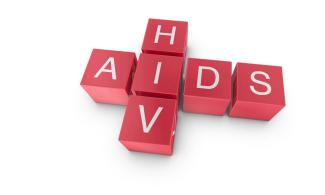
No fewer than 1,619,133 Nigerians living with Human Immunodeficiency Virus are now on treatment, the National Agency for the Control of AIDS have said.
“As of the end of September 2022, we have 1,619,133 persons on treatment, which represents a significant leap when compared to 838,020 persons in 2017,” the agency said on Thursday.
This was contained in a release by the Director General of NACA, Dr Gambo Aliyu, at a press briefing on Thursday in Abuja in commemoration of the World AIDS Day themed “Equalise to end AIDS: Equal access to treatment and prevention services.”
Dr Gambo explained that this year’s WAD seeks to promote equal access across the population that is marginalised among vulnerable and key affected population groups by removing economic, social, cultural, and legal barriers to HIV prevention services across population groups that are vulnerable to HIV.
According to the statement, the pre-COVID-19 molecular laboratory testing sites were 27 but it is now done in over 100 molecular testing sites where the virus can be monitored for prevention and treatment purposes.
He said, “Nigeria’s success story is evident from the significant dip in the HIV prevalence of 3.4 per cent in 2017 to a population-based prevalence of 1.3 per cent in 2018.
“As of the end of September 2022, we have 1,619,133 persons on treatment, which represents a significant leap when compared to 838,020 persons in 2017. Our treatment sites have increased from 251 in 2007 to 2,262 in 2020.
“New HIV infections gradually declined from 103,404 in 2019 to 92,323 in 2021. There has also been significant growth in key population treatment centres from 10 sites in 2017 with a coverage of 16,147 to 118 in 2021 with coverage of over 221,010 individuals.
“Through our Alignment 2.0, HIV prevention and treatment is shifting ownership to states while guaranteeing continued partnership and support from donors.
“The launch of the N62bn Trust Fund of Nigeria constitutes a further step towards sustained country-level funding and ownership of the national response.
“As we sustain the epidemic control achieved thus far, more focus will be directed at ensuring increased availability, quality, and suitability of services, for HIV treatment, testing, and prevention, so that everyone is well-served.
“Access to prevention, treatment, care, and support services will be intensified for hard-to-reach populations especially those communities circumscribed by conflict,” he noted.